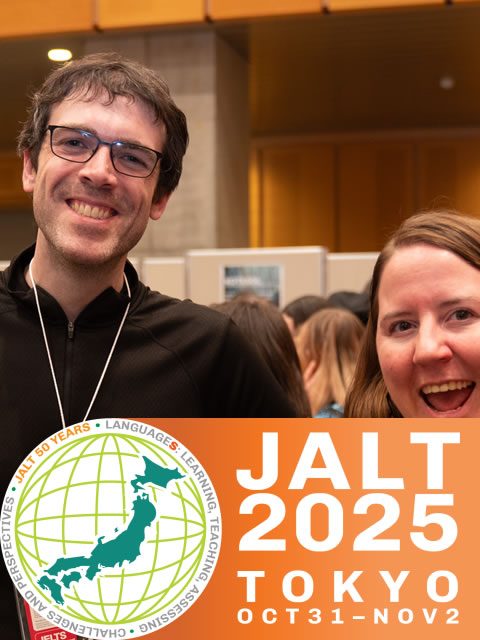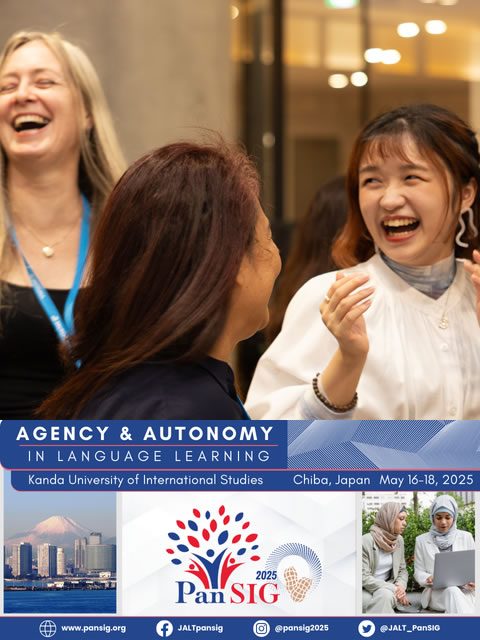Your cart is currently empty!
Event Report, Shinshu Chapter February 2019
•
Developing the L2 Reader: Texts and Tasks
Kimberly Klassen
Shinshu JALT would like to thank Dr. Kimberly Klassen of International Christian University for her presentation, Developing the L2 Reader: Texts and Tasks, at the University of Nagano on February 9.
The two-hour session opened with a clever introduction by Program Chair Jean-Pierre, who succeeded in using an appropriate amount of humor to get us started. This was followed by Kimberly’s introduction during which she shared her own story of becoming demotivated in second language learning when she entered university and encountered texts not appropriate for her reading ability. Her experience reminded many of us of our own struggles, and, so engaged, we turned our focus to Japanese students.
Kimberly’s presentation was divided into two parts. As her title suggests, the first was about choosing appropriate texts for students, and the second about appropriate tasks.
In the first part, Kimberly tackled three main questions: (1) What percentage of text vocabulary do students need to know? (2) How can teachers find out the vocabulary level of students? and (3) How can teachers get and use a vocabulary profile of a particular text? After frustrating us with an English text containing 20% non-words, she shared research that suggests knowledge of 95% of the vocabulary is effective for classroom work while 98% is appropriate for independent reading and content texts. Kimberly recommended the colorful site www.lextutor.ca/tests , especially the VLT test by Schmidt, Schmidt & Clapham, as an effective way to determine student vocabulary levels (27 out of 30 correct indicates that the level is known). Finally, she walked us through the use of www.lextutor.ca/vp which can analyze potential classroom texts quickly through simple copy and paste.
After a short break, Kimberly addressed issues related to reading tasks. She began by distinguishing between lower-level (text-based) processing skills and higher-level (reader-based) processing skills and explained that, traditionally, lower-level processing skills have been the focus of L1 research while higher-level skills have been the focus of L2 research. Processing skills are hierarchical in that lower-level skills must be efficient in order for working memory to be available for high-level skills. However, these skill sets are not reciprocal: efficiencies in one set cannot compensate for deficiencies in the other. She presented the cycle of weak readers and suggested that the only way to break the cycle is to increase reading speed which means developing lower-level skills including word recognition. The high-level skill activities that fill most textbooks cannot do the trick.
At the end of the presentation, Kimberly introduced seven different class activities, including timed reading, class-paced reading, speed reading, and one-minute reading, that can help L2 learners develop lower-level processing skills. We tried several and, in addition to understanding how these activities might help students become better and happier readers, perhaps got a taste of the combination of excitement and nervousness students may feel. I am certain that many of the participants left the event looking forward to the chance to incorporate some of these activities into spring semester.
Overall, it was close to a perfect event. (The only thing missing was Heather’s usual refreshments.) Once again, thank you Kimberly.
(Reported by Colleen Dalton.)

JALT2025 International Conference
2025年10月31日(金)〜2025年11月02日(日) 東京都渋谷 国立オリンピック記念青少年総合センター Friday, October 31 – Sunday, November 02, 2025 • National Olympics Youth Memorial Center, Tokyo, Japan

PanSIG Conference
PanSIG 2025 will be held May 16-18 in Chiba. PanSIG is an annual conference organized by JALT’s Special Interest Groups (SIGs).
